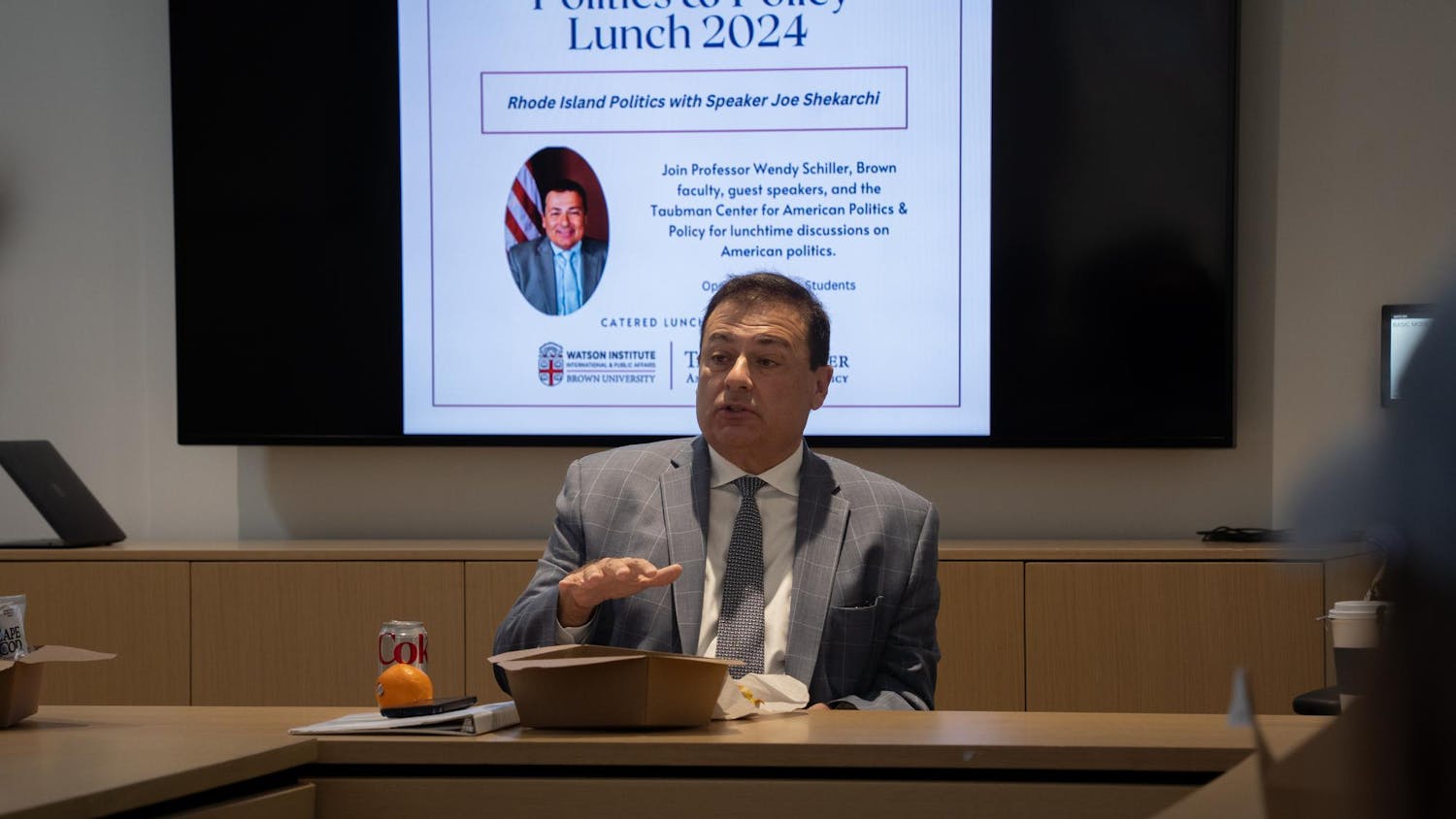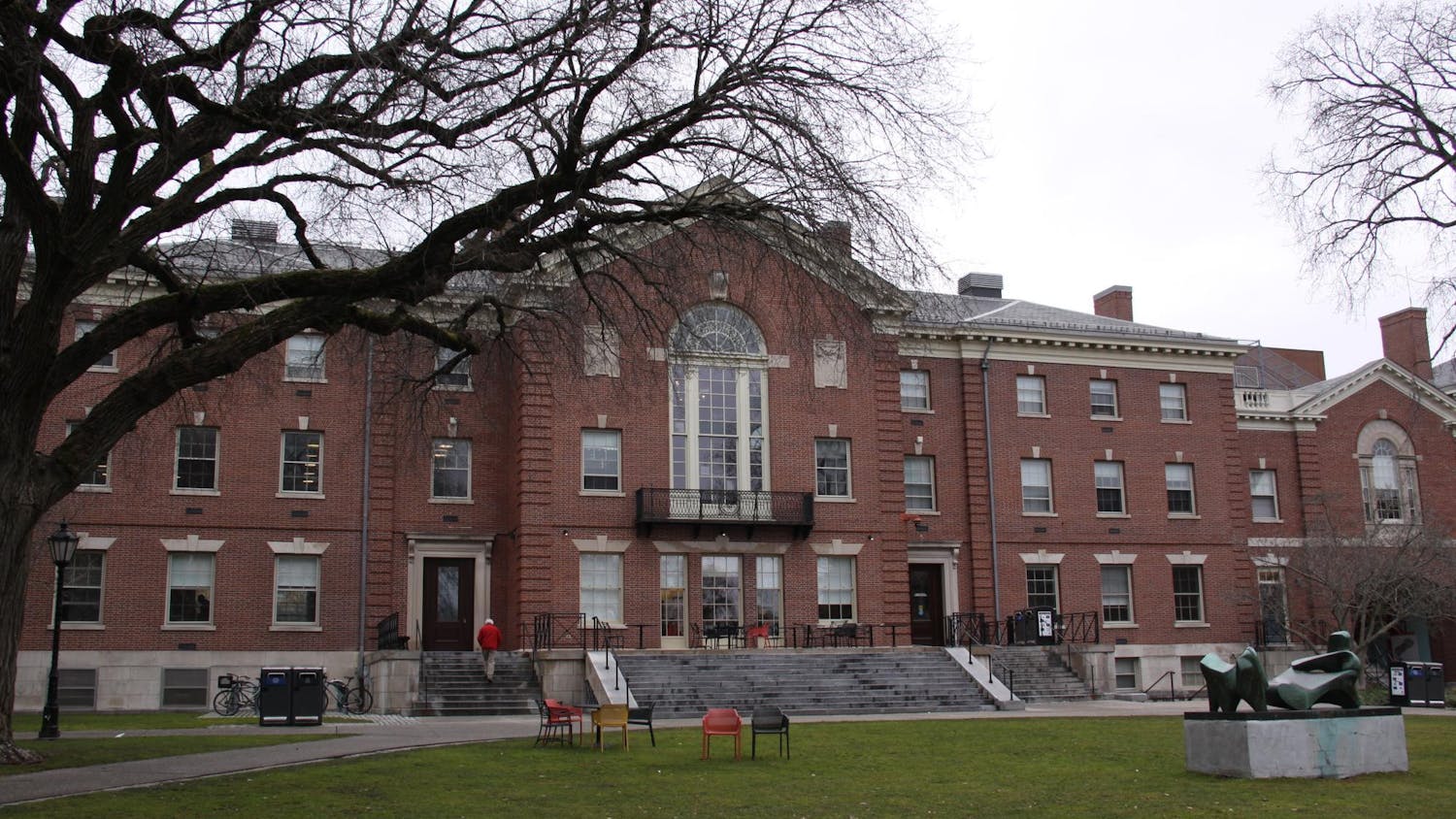Successful foreign policy must transcend threat response and capitalize on cooperative opportunities, said Assistant Secretary of State for Western Hemisphere Affairs Roberta Jacobson ’82 in a lecture at the Watson Institute for International Affairs Thursday.
Jacobson, whom Vice President for International Affairs Matthew Gutmann introduced as “the highest U.S. diplomat responsible for Latin America,” spoke about the State Department’s work in Latin America and the Caribbean and its direction under new Secretary of State John Kerry to an audience of around 40 people.
Jacobson’s appointment as assistant secretary in 2012 marked both the first time a woman has held the position and the first time a civil service employee has filled the post instead of a foreign service officer, she said, adding that she has served overseas twice.
Former Secretary of State Hillary Clinton often expressed that foreign policy “is all about threats,” Jacobson said, but “if foreign policy is only about threats and not about opportunities, we have missed a whole section of what foreign policy should be.”
“In my view, our foreign policy in the Western hemisphere right now is a lot more about opportunities than it is about threats,” Jacobson said.
President Obama entered office with a desire to build “constructive, balanced partnerships,” she said.
Jacobson said the United States undeniably benefits from increased economic prosperity and political stability in the Western hemisphere. More than 40 percent of United States exports go to countries in the region, and this trade supports 4 million United States jobs, she said.
The Western hemisphere affects United States national security and foreign policy to a greater degree than China or Russia ever will, Jacobson said, but she added that she recognizes hers is “an unpopular opinion.”
“The hemisphere makes a striking range of contributions on the global stage,” Jacobson said. Canada provides leadership in NATO and played a particularly important role in Libya, and Uruguay contributes the most money per capita to United Nations peacekeeping operations of any country in the world, she said.
Jacobson said Costa Rica initiated the landmark arms trade treaty passed at the United Nations General Assembly Tuesday, adding that Mexico’s leadership in the last three months helped to “get it across the finish line.”
Jacobson said Kerry will steer the State Department to focus on energy — an issue in which Latin America, a major oil exporter, is poised to play a major role — and education, which she said “underpins everything else we’re trying to do.”
Government initiatives already aim to address these issues in Latin America, like the State Department’s Connecting the Americas 2022 initiative, which has committed to providing affordable electricity to all citizens in the Americas within the next decade, Jacobson said. Obama organized the Energy and Climate Partnership of the Americas in 2009, she said, and his 100,000 Strong in the Americas program aims to promote educational exchanges between the United States and Latin America and the Caribbean through sending 100,000 students each year from the U.S. to Latin America and the Caribbean and vice versa.
The final pillar of the State Department’s agenda under Kerry will be advancing democracy in the region, Jacobson said.
“It’s my responsibility to speak out clearly and without hesitation when fundamental democratic principles are threatened,” she said. “We cannot be the lone voice of dissent when democracy is threatened in the hemisphere.”
At the special General Assembly of the Organization of American States last month, the Inter-American Commission on Human Rights came under fire from a “determined but small group of governments” that attempted to undermine its legitimacy, Jacobson said. The State Department decided the comission needed reform but “remains an enormous force for good in the hemisphere, deserves defending and should continue to be strengthened and fully funded,” she said.
The special OAS General Assembly resolved to maintain the commission’s funding in full and to preserve its independence, she added.
Jacobson praised the University for creating the Watson Institute, which did not exist when she was an undergraduate. She said that when she was at Brown, the political events in Latin America made it a compelling time for a political science student to study the region. As an undergraduate, Jacobson double concentrated in political science and Latin American Studies — an independent concentration she designed.
Jacobson encouraged students to consider careers in the federal government, especially the State Department and United States Agency for International Development.
Read The Herald's Q&A with Jacobson.
ADVERTISEMENT




